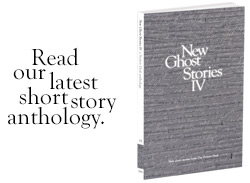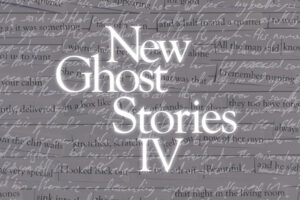Over the last couple of months, I’ve been dedicating odd hours to not reading Brothers, the new novel by Chinese author Yu Hua.
It started a few months ago, round about the time that we had all that fuss about Roberto Bolaño’s 2666. That book was getting a lot of coverage, and I was thinking of getting hold of a copy and reviewing it myself, but it was an awfully big book, and it was being very ably reviewed elsewhere. Still, I liked the idea of grappling with a big, translated monster, and so I was intrigued when I heard about the imminent arrival of Yu Hua’s Brothers.
 Brothers sounded to me like a very interesting prospect: Yu Hua is big news in China, an ex-dentist who claims to have become an author because he thought that the inside of the mouth was “the place with the ugliest scenes on Earth,” and life at the cultural centre looked easy. He started out writing avant-garde novels, and is now one of the best-selling authors in China.
Brothers sounded to me like a very interesting prospect: Yu Hua is big news in China, an ex-dentist who claims to have become an author because he thought that the inside of the mouth was “the place with the ugliest scenes on Earth,” and life at the cultural centre looked easy. He started out writing avant-garde novels, and is now one of the best-selling authors in China.
The novel itself follows two stepbrothers in China from the Cultural Revolution through to the Consumer Revolution, which has to be a pretty fascinating journey, and one that’s relevant to those of us who make up the other four-fifths of the world’s population.
Reading interviews with Yu Hua online, like this one in the NY Times Weekend Magazine, I discovered a little more about the story. Apparently, Brothers is a pretty controversial title in China: the left wing hates it for a negative representation of the Cultural Revolution, and the right hates it for the way it deals with the swing towards capitalism. It’s been accused of obscenity, and indeed parts of the story do sound rather grubby: one of the two characters spies on women in a public toilet, and apparently there is torture, male breast enlargement, and some sort of mucking about with hymens. While reports suggest that Yu Hua is no longer quite as subversive and experimental as he was in his earlier work, it doesn’t sound like he’s exactly become placid and middle class, either. In 2006, an aggressive collection of criticism of Brothers was published under the title Pulling Yu Hua’s Teeth (he used to be a dentist, you see…). The title essay is translated on Paper Republic here (contains spoilers).
Originally printed in two parts (2005 & 2006), Brothers has officially sold more than a million copies in China. Take into account the pirated editions (rife in China), and the actual sales are likely to be more than double that.
So, I’ve been gathering all of this information, reading the interviews, and watching with interest. I’ve picked the book up several times and turned it over. I’ve even mulled over the imprint of my copy—Picador Asia—and the publishing concept that lies behind those four little letters. The only thing I haven’t actually done is read the damn thing. You see, it’s just under 650 pages, and that represents two or three other books unread, unreviewed. That wouldn’t necessarily stop me—nothing wrong with a big fat book once in a while—but in the case of Brothers, whenever the pressure to read it starts to build, I can let off a little steam by reading about it.
I’d like to recommend reading Brothers… but as I haven’t yet read it, I can’t. However, I can definitely recommend spending a little time not reading the book, perhaps starting with some of the links above. It’s fascinating.












May 11th, 2009 at 10:21 am
Does China have a middle class, then?
May 11th, 2009 at 10:31 am
apparently
May 11th, 2009 at 4:04 pm
I haven’t read it either, despite being supplied with two copies by Picador, proof and finished. You forgot to say that it’s not only 650 pages long, but that almost each and every one of those pages is covered in very small type.
However, I have enjoyed reading about reading about it. Well worth the effort.
May 11th, 2009 at 4:04 pm
Oh and I can’t quite get out of my head that the author’s name sounds a little like “You whore.” Sorry but.
May 11th, 2009 at 4:07 pm
John: I actually edited the word “dense” out from before “type”, because I thought it might be overly picky. But now that you’ve said it too…
And yes, I have the same issue with his name. Although sometimes I also get “Yoo Hoo!”
Glad you enjoyed reading about reading about :)
May 11th, 2009 at 5:01 pm
I haven’t read all that much positive about 2666. Are you going to read that one?
May 11th, 2009 at 5:02 pm
Well, Candy, I’m not not going to read it. But, in all probability, it’s likely that I’m not going to read it.
May 11th, 2009 at 5:54 pm
Rob, you are Geoff Dyer and I claim my five pounds!
May 11th, 2009 at 7:55 pm
Great that you are stuck on a modern work, Rob — I have Victor Hugo and Cervantes on the shelf, looked at every now and then and then put back. And I do like long novels, but this one and 2666 I will be giving a miss.
May 11th, 2009 at 11:39 pm
John: Now I wish I’d read Geoff Dyer! As it is, I want to say something witty, but I’m trapped up to my knees in a bog of ignorance!
Kevin: I started Don Q once, but didn’t get very far.It was a terrible edition – all typos and weird translations – but I can’t only blame that. Let’s wait: one day they might find the play Shakespeare based on it… (or was it only a part of it?)
May 12th, 2009 at 3:36 am
But Hugo and Cervantes are wonderful. Thanks to all of you now I don’t have to feel stupid for not wanting to read 2666.
May 12th, 2009 at 7:52 am
Candy – maybe I can blame my translation of Don Q after all… although, John, if you stop by this post again, can you remind us what Martin Amis wrote about Don Q? I seem to remember it being slightly offensive. In The War Against Cliche?
May 12th, 2009 at 3:18 pm
The Dyer thing, Rob, was just because your rhetorical twinkle in comment 7 reminded me of the kind of thing he would say, particularly in Yoga for People Who Can’t Be Bothered to Do It.
Anyway, Amis on the Don. Here’s a fillet of his choicest slapdowns:
May 12th, 2009 at 4:20 pm
Thanks. All I needed was the cheery Amis thoughts to get me ready. With so many new books on hand, Cervantes was going to be put on hold for some months anyway — with luck I will have forgotten the exchange above by the time I try it. Hugo may come first — I certainly enjoyed the musical.
May 12th, 2009 at 9:03 pm
Of course you all know that Shakespeare wrote Don Quixote don’t you.
May 13th, 2009 at 12:11 pm
John: Thanks for taking hte time to type out all that! I knew there was a reason I liked Amis, back before the day that I read Yellow Dog! I think I’m going to have to track down a copy of The War Against Cliché… thanks also for the Dyer quote. Having spent a good part of the morning assembling book cases, I’m fully ready to start getting my hands on some new authors.
Anybody here read Hugo?
Candy, your comment reminded me of a piece of overheard conversation mentioned in a documentary about Sherlock Holmes. It was a mother and child talking, and the child said, “Mum, was Sherlock Holmes real?” The mother replied, “No, of course not. He was a fictional character. You know, like WIlliam Shakespeare.”
May 13th, 2009 at 12:14 pm
Going back to Yu Hua for a second, Picador Twittered me a link to this blog post about Brothers in the context of new Chinese literature.
May 13th, 2009 at 8:02 pm
The very first ever entry on my blog is Victor Hugo, Notre Dame de Paris, fabulous book. Candy is quite right, Hugo is marvellous.
And mentioning Candy, Candy, I don’t much fancy 2666 either.
Stuart, great blog entry, very funny. Do you feel at all like you have read it, now you’ve spent all this time not reading it?
May 14th, 2009 at 11:38 am
I feel a bit like I’ve read it, but mostly summing up all of these things made me really want to read it… (I take it you were talking to me?)
May 15th, 2009 at 12:13 pm
I was indeed Rob, I look forward to hearing more about it when you do read it.
January 8th, 2010 at 12:47 pm
[…] becoming increasingly reluctant to bother with doorstep novels, and when Roberto Bolaño’s much-lauded 2666 was published in […]
November 18th, 2021 at 9:51 am
****May 11th, 2009 at 4:04 pm
Oh and I can’t quite get out of my head that the author’s name sounds a little like “You whore.” Sorry but.****
Oh, it so does not, at least if you know how to pronounce it correctly, ;-).